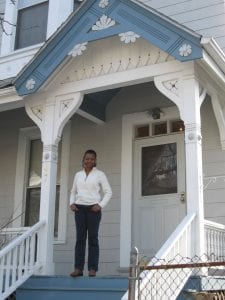
“I’m a person for information,” she says. “It’s like the biggest investment you’ll make in your life, and you want to make educated decisions. I followed the rules.”
George lives very close to streets awash in foreclosure. She bought her house in 2006, at the height of the subprime mortgage epidemic. But unlike many of her fellow Bostonians, George took a homebuyer class. Twice. While she may have already been a cautious sort by nature, in these classes she was reminded repeatedly that there are good lenders, and then there are very bad ones.
It was the Massachusetts Affordable Housing Alliance (MAHA) that showed George the way. Founded in 1985, this organization has helped thousands of people buy homes. Many of them could not have done so in this very expensive state, if not for the classes they took at MAHA and the loans to which those classes opened doors.
From its beginnings MAHA was much more than a place to get homebuyer training. It tackled organizing and advocacy, fought to strengthen the Community Reinvestment Act (CRA), and created new loan programs designed for low- and moderate-income buyers. In 2007, MAHA successfully pushed legislation to make Massachusetts the first state to extend CRA provisions to mortgage lenders. The bill’s provisions includes full state examinations for all lenders making 50 or more mortgage loans each year in Massachusetts and a rating system based on how well each lender meets the state’s credit needs.
Long before the national media caught wind of the subprime mortgage crisis, MAHA was warning federal and state legislators, mayors, and the media of what was coming. But these advocates have also learned from the crisis about how to do their work better.
“In some ways the loan sharks have taught us all a lesson,” says Thomas Callahan, MAHA’s executive director, who has been with the organization since 1987. “They got their business because they were out in the church halls, socializing with the community. It was a wake-up call for nonprofits everywhere that we’ve got to be that aggressive.”
Callahan points out that this is not the first time MAHA has watched the bust of an unsustainable economic boom. After housing prices climbed 37 percent in Greater Boston in one year, in 1986, they dropped precipitously during the recession of the early 1990s.
That economic decline provided a golden opportunity for MAHA and other housing advocates, which had been publicizing the discriminatory practices of local banks that offered few home loans in neighborhoods of color in Boston. Banks already under pressure to open up their lending were also anxious to make up for falling real estate prices.
Throughout the 1990s and into the new century, banks steadily improved their lending in low-income communities in Massachusetts. By the first few years of this decade, MAHA was able to broaden its focus from lending practices to finding creative ways to draw more people into homeownership education. The group began to train graduates of its own classes to engage neighbors in legislative battles and get-out-the-vote campaigns.
George found MAHA back in 2001, when she first enrolled in one of its courses. Over the span of five weekly sessions, she learned about each aspect of the process from a host of professionals. First, one of MAHA’s counselors explained the ups and downs of owning a home. Then she learned about fair housing laws from a Realtor and, from a home inspector, how to find a good inspector. An attorney filled her in on the finer points of purchase and sales agreements, and title insurance. A credit counselor talked about the importance of developing a budget. A lender took the class through the mortgage application process. Finally, the MAHA counselor touched on what happens after the new process is over, though much of this information is left to a separate post-purchase course.
George took lots of notes in that class. But, “I knew I wasn’t ready to buy then. My son was a baby, and I didn’t have the finances.” But she had caught the homeownership bug, and MAHA organizers encouraged her to get involved. She became a member of what MAHA calls the Homebuyers Union, made up of people who have taken the homeownership pre-purchasing course and perhaps bought a house.
Plenty of people who haven’t bought a house get involved in the Homebuyers Union anyway. They see it as in their self-interest to be connected to a group that can eventually steer them to a smart home purchase. Soon George was passing out cards on the streets, getting people to sign a petition for the City of Boston to support more funding for affordable housing. She would also come to MAHA’s office to participate in phone banks.
Meanwhile, she opened an Individual Development Account (IDA) with another local organization, saving money toward an eventual home purchase. In 2005, having completed the two-year IDA program, George returned to MAHA to re-take the homebuyer course. She wrote down every detail in her notebook, including contact information for the particular lender, Realtor, attorney and home inspector who spoke to the class. These individuals were people MAHA believed would do right by their customers. George went on to use several of them in her house search.
She looked for a house for a long time. “There were many houses with a nice appearance on the outside, but not much to work with on the inside. So I started losing faith.” Then she found a house with an owner who had been there over 40 years. This owner had kept the house in good shape. The house was within a half-hour of George’s work, and not so far from where her son would go to school. It was perfect.
George probably couldn’t have bought the house though, without the help of a state-run second mortgage program called SoftSecond. With her certificate from a first-time homebuyer’s course, George was eligible for the program. The Massachusetts Housing Partnership, which administers SoftSecond, requires participants to complete the homebuyer class to make sure they understand the financial implications of buying. Moreover, the mortgage program is generally only available to first-time buyers, so it’s assumed that applicants have little prior experience.
MAHA itself had led the effort to create the SoftSecond program in 1991. It was developed in response to media reports of racial disparities in bank lending in Boston neighborhoods. The program’s name derives from a first mortgage that covers 77 percent of the loan, and a second mortgage for an additional 20 percent. The second mortgage is interest-free for the first 10 years of the loan. The final 3 percent represents the down payment. Both loans are originated at interest rates that are slightly below-market. Some 10,000 people have benefited from SoftSecond in Massachusetts; its delinquency rate in the first nine months of 2008 was 2.2 percent, compared to a 4.4 percent rate for all prime mortgage loans statewide.
A New Space Brings Added Visibility
A few years before George got involved, MAHA had moved into a little house on a retail corridor in Boston’s Dorchester neighborhood. Before that, they were downtown in the city’s financial district, but realized that as a grassroots organization they belonged closer to their base.
“Dorchester is the largest neighborhood in the city and the most diverse, so we made a conscious decision to go there,” says Callahan. “Twenty-eight percent of our homeownership graduates are from Dorchester.”
While operating in Dorchester might have been good for MAHA’s relationship with its base, the house was far too small for homeownership classes and phone banking. It was hard to meet the demand for the classes with so little room.
So, in 2004, MAHA launched a capital campaign to build a new, larger building that would give it improved visibility in the neighborhood. They tore down the old house and, in 2008, completed a striking, contemporary new office with lots of green features. The center of the building was designed as something of an atrium, with lots of light streaming down from windows near the ceiling. It gives an especially welcoming feeling to visitors.
“This room is really the motivation for the entire project,” says Callahan, standing in the expansive second-floor space where people come for the classes. Over the first four months after the building’s completion, some 1,200 people used the space.
They didn’t just come for classes; MAHA encourages neighborhood-based groups from crime watches to the local health center to schedule their meetings here. This year, MAHA is stepping up its outreach to the community to build more confidence in its vital role in the home-buying process. They planned to host 34 community events, from game nights to an energy-efficiency fair, to draw more people into the building. This way, people can learn about the organization without any pressure to sign up for a class.
Adding these community events is not just about connecting better with the neighborhood where MAHA is headquartered. The subprime mortgage crisis shows that many people didn’t just lack the proper education to buy a house, but they were also unaware that they had options. In order for MAHA to meet this challenge now and in the future, the organization needs to expand its reach.
“We’re trying to build ourselves as a trusted advisor,” says Jennifer Tsolas, MAHA’s development manager. “People might think a class would be intimidating, or a waste of time. We want them to think of us when they’re ready to buy.”
This May MAHA will hold a homeownership fair and rally at a large track and field facility in Boston. Officials from large banks are invited to the event, where MAHA plans to ask them to commit once more to lend fairly and responsibly.
MAHA Moving Beyond the City
While MAHA has derived much of its success from working with Boston residents, students in its “Homeownership University” come from 100 different zip codes. In 2004 MAHA opened an office in Dedham, a town just south of the city, and began organizing residents and advocating for affordable developments in the suburbs. There weren’t many housing groups active in these small towns, and MAHA leaders had noticed a sharp uptick in the number of suburban residents coming into the city for homebuyer training.
“There was an appetite for unbiased mortgage information in those places as well,” says Callahan.
The group has had notable success in the relatively affluent town of Needham, just west of Boston. MAHA worked with a Needham-based nonprofit to win passage of a local referendum in 2004 to allocate funding to affordable housing. Called the Community Preservation Act, the measure allowed Needham to adopt an annual property tax surcharge of up to 3 percent, with the funding allocated to housing, open space and/or historic preservation. At least 10 percent of the money must go to housing. The money helped assure that there would be ample affordability in High Rock Estates, a new homeownership development on a former public housing site near the town center. At least one graduate of MAHA’s pre-purchase class has moved into the development after gaining a SoftSecond mortgage. She had learned of MAHA because its course was required as part of High Rock’s application process.
MAHA continues to encourage its clients to not only seek homeownership but to also advocate for safe homeownership and lending practices. Their story is “homeownership done right.” George says she is a believer in MAHA’s method, which encouraged her to reach homeownership through education and careful planning. This kept her on track to avoid the pitfalls that befell many of her neighbors.
“You may think you know enough, but when you get to one of those classes, it’s an eye-opener,” she says.
George’s participation in a homebuying course gave her a leg up on the many people who bought houses without a class, and either made poor choices or were victimized by shady lenders. But homeownership carries risks to which even a savvy consumer like George is subject. What if she were to lose her job, and as a result have trouble paying the mortgage? What if some unforeseen medical issue arose in her family? It’s not as easy to walk away from a mortgage as it is to leave behind a lease. Still, through MAHA, George is part of a community of homebuyers and advocates that she can call on for help if she ever needs it.

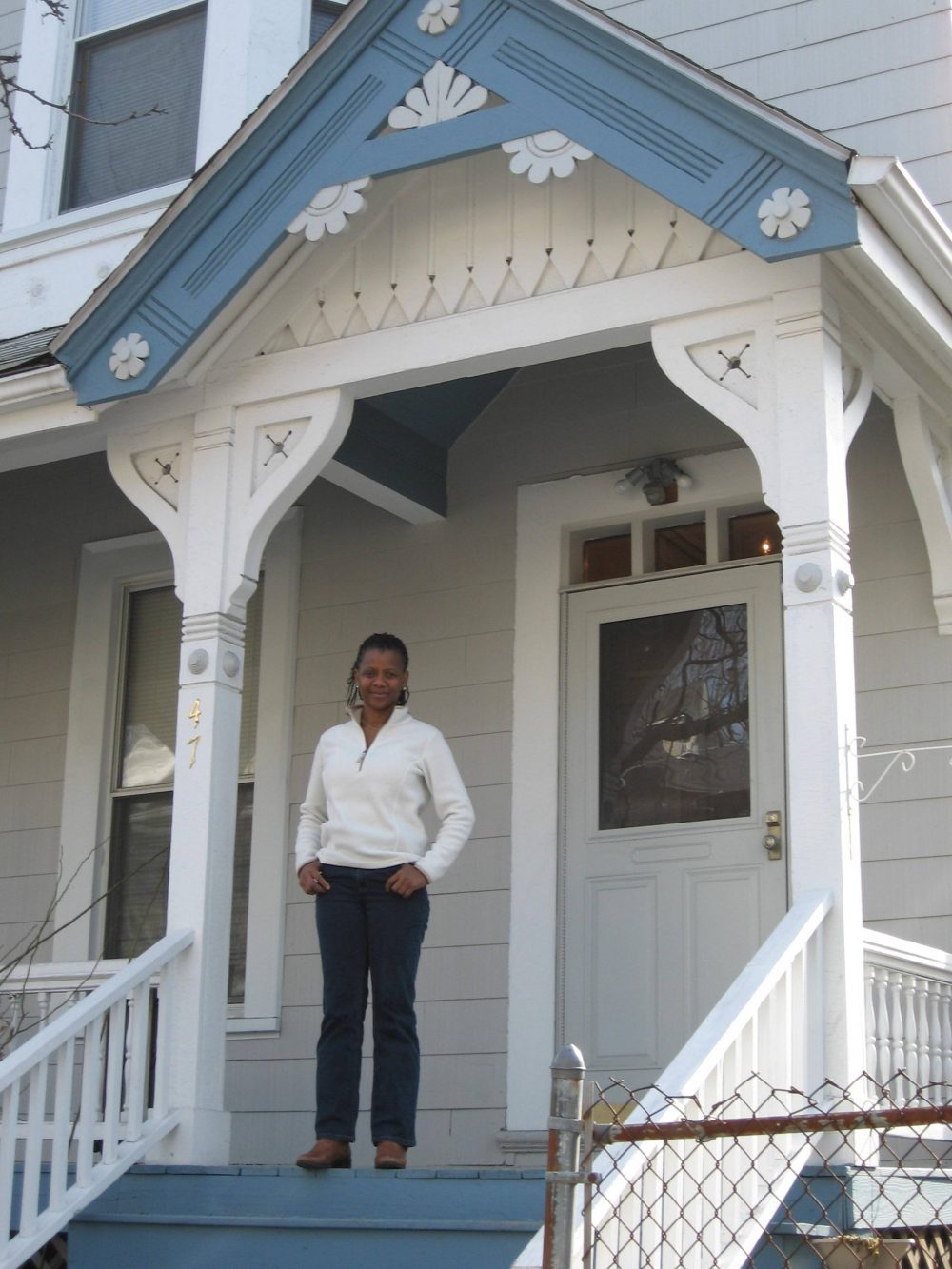
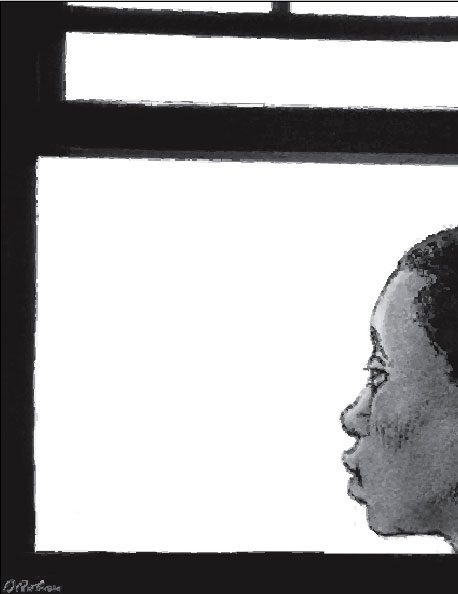
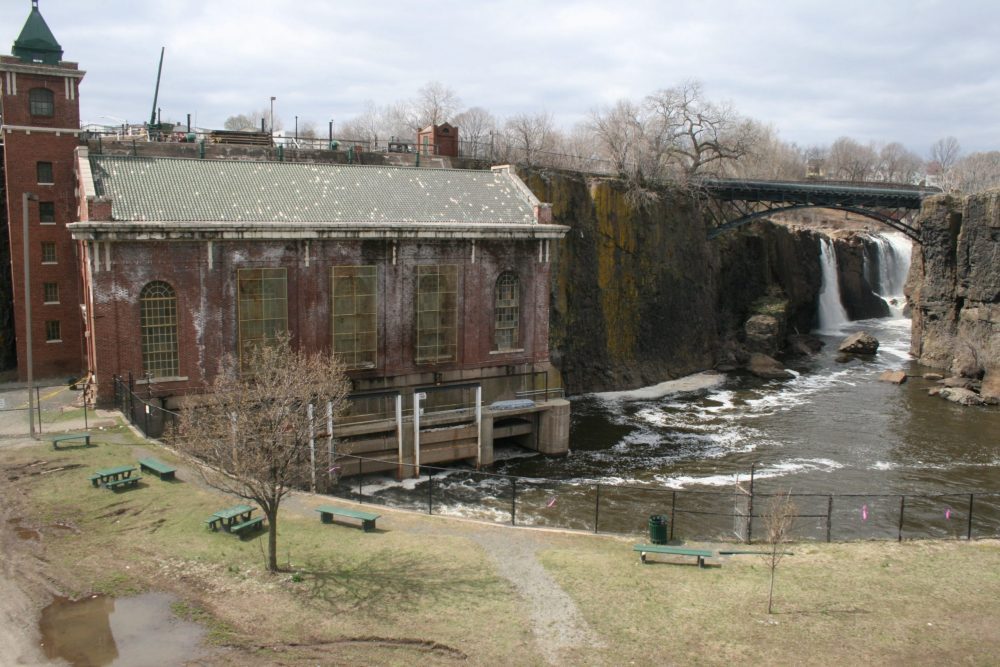
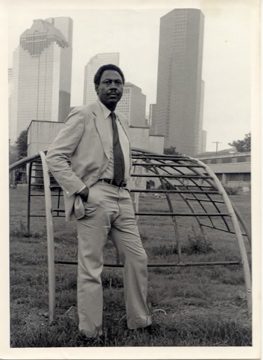
Comments